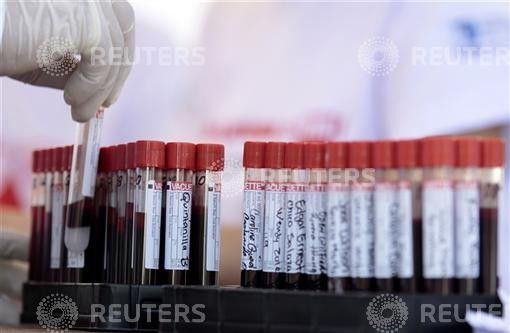Scientists Develop New Blood Test That Can Predict A Person's Age

For a long time now, we have known that measuring certain proteins in the blood can provide information pertaining to an individual’s health status including blood sugar and lipid levels. But a team of scientists from the Stanford University School of Medicine has developed a new method of forecasting a person’s age using the proteins circulating in the blood.
The scientists refer to it as the ‘proteomic clock’ which relies on the measurements of protein levels which rise and fall in a person’s lifetime. And they opine that such changes in the levels of numerous proteins not only characterize but might also possibly cause the phenomenon of aging.
“It hasn't been appreciated that so many different proteins' levels—roughly a third of all the ones we looked at—change markedly with advancing age" MedicalXpress quoted Tony Wyss-Coray, Ph.D., professor of neurology and neurological sciences, the D. H. Chen Professor II and co-director of the Stanford Alzheimer's Disease Research Center.
The researchers who analyzed the plasma from the blood of 4263 people aged between 18 to 95 found that protein are the workhorses of the body’s cellular constituents and when they undergo substantial changes, looking at them can give you a snapshot of what your body is undergoing. The study points to the fact that physiological aging does not simply proceed at a perfectly even pace but rather a more irregular trajectory with three distinct points of inflection in the human life cycle.
They developed the clock by looking at composite levels of proteins within groups of people rather than doing so individually. And they were able to predict people’s ages within a range of three years. Also, when the age they predicted was substantially lower than the actual age, it turned out that the individual was remarkably healthy for their age.
The study also pinpoints that women and men age differently. Of the same proteins that were analyzed, they found that changes with age, about two-thirds were significantly more predictive for one gender than for the other.
The researchers opine that in another 5-10 years, their test might see several clinical applications including age-linked conditions like cardiovascular diseases or Alzheimer's and for drug discoveries or therapeutic interventions.
© Copyright IBTimes 2025. All rights reserved.






















